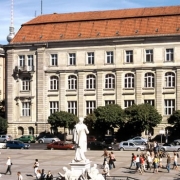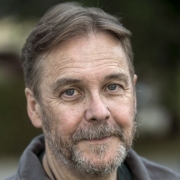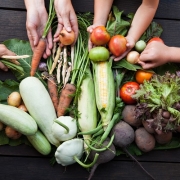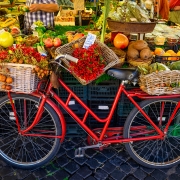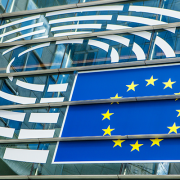The Group of Chief Scientific Advisors provides high quality, timely and independent scientific advice to the College of European Commissioners on any subject when requested to do so by the College. Its seven members are appointed by the Commissioner for Research, Science and Innovation from a short list established under the responsibility of an independent, high-level identification committee. Learn more here.
Archive for month: April, 2020
ALLEA awards its 2020 Madame de Staël Prize to cultural historian Joep Leerssen
The Jury of ALLEA’s Madame de Staël Prize for Cultural Values paid tribute to Dutch cultural historian Joep Leerssen (University of Amsterdam), whose work has been quintessential in studying the emergence and the development of European national movements and stereotypes.
The award worth €10,000 is awarded by ALLEA, the European Federation of Academies of Sciences and Humanities, jointly with the foundation Compagnia di San Paolo as major supporter. The Prize recognises eminent scholars and intellectuals whose work represents a significant contribution to the cultural values of Europe and to the idea of European integration.
A comparatist by formation, Leerssen has devoted his career to analysing how Europe’s multinationality has been experienced in history, tracing Europe’s identity as an evolving multi-party discourse of perceptions and representations.
“European cultural history is an endlessly seductive labyrinth of mirrors, full of guilt, glory, and self-reflections”, he commented. “Poised between cosmopolitanism and nationalism, being European is a standing challenge to our creative intelligence as scholars and as citizens.”
Summarising the deliberations of the Madame de Staël Prize Jury, ALLEA President and Chairman of the Jury, Antonio Loprieno stated:
“Joep Leerssen is one of the world’s most remarkable figures in the critical analysis of ethnic and cultural stereotyping and in the comparative history of European nationalisms. In times when various forms of national rhetoric seem to play a prominent role in public discourse, we need the orientation provided by comparative cultural research in order to navigate the challenges faced by modern European societies. We are delighted to award the 2020 Madame de Staël Prize to one such renowned scholar and pay tribute to Professor Leersen’s remarkable scientific opus.”
Joep Leerssen is a cultural historian with training in Comparative Literature. He is currently Professor of European Studies at the University of Amsterdam, additionally holding a part-time research professorship at the University of Maastricht. In course of his professional career, he has held visiting appointments at Harvard, Cambridge, Göttingen, and the ENS (Paris), among others. He is a member of the Royal Netherlands Academy of Arts and Sciences.
With the funding attached to two major academic awards (the Spinoza Prize and a Royal Netherlands Academy Professorship), Leerssen set up the Study Platform on Interlocking Nationalisms in 2009-2010. Its flagship publication to date is the Encyclopedia of Romantic Nationalism in Europe (2015-18). Among his other books are Remembrance and Imagination (1996), De Bronnen van het Vaderland (2nd ed. 2011), Spiegelpaleis Europa (3rd ed. 2015), National Thought in Europe (3rd ed. 2018), Imagology and The Rhine: National Tensions, Romantic Visions (2007 and 2017, both co-edited with Manfred Beller), and Commemorating Writers in 19th-Century Europe (2014, co-edited with Ann Rigney).
Now in its seventh edition, the All European Academies Madame de Staël Prize honours outstanding scholarly and intellectual contributions to the advancement of Europe. Previous laureates include Mariana Mazzucato, Andrea Pető, Koen Lenaerts and others.
About Compagnia di San Paolo
Since 1563, we have been working out of Turin for the common good, with a focus on people. Our experience has taught us that the well-being of individuals is closely linked to that of their community. This is why, for us, the Sustainable Development Goals set by the United Nations are a valuable opportunity to contribute to the future of humankind at all levels: we have taken on this challenge and reorganised ourselves accordingly.
We have three main Goals: Culture, People and Planet, which can be achieved through fourteen Missions. We are committed to preserving and expanding our endowment in order to make contributions and develop projects working alongside institutions and in collaboration with our auxiliary bodies. This is our commitment, for the common good and for everyone’s future.
Diverging Narratives of Democracy in Europe
 Peter J. Verovšek, Lecturer (Assistant Professor) in Politics/International Relations at the University of Sheffield and British Academy Mid-Career Fellow, joined us in a conversation about the challenges facing Europe’s unity. In this interview, he sheds light on the factors preventing intellectuals from actively and effectively addressing these challenges.
Peter J. Verovšek, Lecturer (Assistant Professor) in Politics/International Relations at the University of Sheffield and British Academy Mid-Career Fellow, joined us in a conversation about the challenges facing Europe’s unity. In this interview, he sheds light on the factors preventing intellectuals from actively and effectively addressing these challenges.
“If you have a kind of conception of democracy based on a national popular sovereignty, then you do not necessarily see populism as a problem.”
What is dividing Europeans and what is holding them together?
I believe that the biggest thing uniting Europeans is the awareness that Europe is becoming an ever-smaller part of the world both economically and (geo-)politically. I think that many Europeans are aware of the fact that in order to keep punching above their economic and political weight, they must do it through Europe, in the form of the EU; in other words, they must work together. Unfortunately, I think what so often divides Europe is precisely a lack of agreement on what the EU should be doing in common. There is not so much disagreement on external policies like trade, but rather more on the enforcement of domestic norms, on how to protect democracy at home, and on how regional funds should be spent. The agreement holding Europeans together is by and large found within the international challenges with which the EU is confronted.
“Until we have a common conception of what it means to have democracy both at home and the European level, it will be difficult to reach agreement on what the EU’s role is.”
Which role do different narratives of democracy play in this respect?
I am convinced that different conceptions of democracy have developed in Western and Central Europe; populism, even the conceptualisation of it, is an obstacle in this regard. If your central point of reference is 1989, with the experience of Communism fresh in your mind and body, of being under the thumb of Moscow and with a feeling of not having control, then it is very easy to interpret populism not as a problem, but instead as an expression of popular sovereignty, of the desire of control on the part of the people of the national community that fought so much against the external control of the Soviet Union. They [the post-Communist states] did not fight so hard to get out from under the thumb of Moscow merely to once again cede power to Brussels. If you have a conception of democracy based on a national popular sovereignty, then you do not necessarily see populism as a problem. Whereas the Western perspective, which comes out of 1945 and is defined by the importance of individual rights like press freedom and rights to assembly rather than popular sovereignty, has been institutionalised at the European Union and various international organisations in the West. In that liberal perspective and conception of the rule of law and democracy, it is very clear that even the slightest thought of populism is problematic. Until we have a common conception of what it means to have democracy both at home and the European level, it will be very difficult to reach an agreement on what the EU’s role is in Europe and how the EU should relate to its own member states.
“We [academics] complain a lot about ‘fake news’ and the degradation of public discourse. I believe in many ways it is an obligation for those of us who … have the luxury and privilege of being able to think about these things for a living, to actually enter into the public sphere …”
What could and should the scientific community and academies do to deal with this challenge?
The academic community has an important role to play. We [academics] complain a lot about ‘fake news’ and the degradation of public discourse. I believe that in many ways it is an obligation for those of us who approach these issues academically – who have the luxury and privilege of being able to think about these things for a living – to actually enter into the public sphere and provide our own perspectives in order to ensure that these issues are heard and are debated in a productive manner. This would help to ensure that a deliberative debate is occurring and not just polarisation or mere shouting. Therefore, I think there is an important role for public intellectuals to play in this process. Unfortunately, a lot of the ways intellectuals are educated these days do not help with that. We are trained to be scholars, there is a lot of pressure for publication and a lot of institutional incentives that push against our entrance into the public sphere and against us taking the time to engage in things like deliberative polling in town halls, as well as to engage in public debates when we are under an incredible pressure to produce research ‘outputs’, to teach more and to confront more administration at the university level. Economic factors and obligations push intellectuals against getting engaged with the public sphere.
“Academies provide fora for academics to engage with the public, to do more deliberation about important public affairs and stimulate public discourse that is more about reaching an agreement than merely about fake news and polarisation.”
Perhaps European academies could play a bigger role here, by helping to raise the profile of that kind of public engagement for academics. Academies provide fora for intellectuals to engage with the public, to do more deliberation about important public affairs and stimulate public discourse that is more about reaching an agreement than merely about fake news and polarisation.
This interview was originally conducted at the conference ‘Europe on Test: The Onus of the Past – and the Necessities of the Future’, organised by the Polish Academy of Sciences (PAN) and ALLEA in October 2019.
How can we make Europe’s food system sustainable?
Food insecurity and sustainability are among the most significant global challenges facing humanity today. They are linked to a range of other challenges including malnutrition, biodiversity loss, climate change, soil degradation, and water quality.
The new SAPEA report on “A Sustainable food system for European Union” addresses these questions and considers how a socially just and sustainable food system for the EU can be best defined and attained.
The report was coordinated by ALLEA, the European Federation of Academies of Sciences and Humanities, and was written by a multidisciplinary group of 15 leading scientists nominated by academies across Europe. This report was requested by the Group of Chief Scientific Advisors to the European Commission and it informs their Scientific Opinion, which contains a set of recommendations for the European Commission. The two documents were published recently.
We are talking with Peter Jackson, the chair of the SAPEA expert group who wrote the report. Peter Jackson is a Professor of Human Geography at the University of Sheffield in the UK and co-Director of the Institute for Sustainable Food.
Transcript of the interview
Good morning. Today we will discuss food sustainability and a new SAPEA report on that topic. We are talking with Peter Jackson, the Chair of the SAPEA expert group who wrote the report. Peter is a Professor of Human Geography at the University of Sheffield in the UK and the co-Director of the Institute for Sustainable Food. Peter, thank you for being here with us! And the first question I wanted to ask you is that the report says that a shift to a sustainable food system in Europe is necessary. Could you tell us why?
Yes, thank you. The current food system is widely acknowledged to be unsustainable, and that’s because of a number of reasons. The food system is a major contributor to greenhouse gas emissions, accounting for more than a third of total global greenhouse gas emissions. It’s also a major contributor to soil depletion, to soil quality impoverishment, and a rage of other ecological consequences, including the loss of biodiversity.
For all these reasons we think the food system is unsustainable. It’s also unsustainable in terms of food waste: as much of a third of the food we produce is lost to human consumption at various points along the supply chain. And lastly, in terms of food security, there’s been an alarming increase in the number of people needing access to emergency forms of food aid, such as food banks. So across all those criteria, it’s fair to say that the current food system is unsustainable.
And how can we make this shift towards sustainability happen? What does evidence say about it?
Conventional approach to solving food system challenges is framed in terms of sustainable intensification. And that means using agri–tech and other scientific interventions to grow more food using less land and fewer inputs. Others disagree with that approach, and suggest we need to focus on agroecology, or organic farming, or to support a return to more local and seasonal food supplies. We clearly also need a concerted approach to reduction of food loss and food waste, but others would also say we need to explore alternative forms of protein, or a move to more plant-based diets.
So there are a whole range of solutions being advocated, and our report tries to weigh up the scientific evidence for one or more of those approaches. Generally though, we support a system-wide and radical change to the current food system, exploring all those options.
The SAPEA report that you worked on sets down key messages for policy-makers, which are then used by the Scientific Advisors to develop recommendations for the European Commission. But this time, we wanted to ask about your personal opinion as an expert: what would be the most important step towards a sustainable food system in Europe?
It’s actually hard to separate more a personal opinion from the conclusions we came to in the report as a whole. But our main approach has been to suggest that no single actor, or single action, holds the key to transitioning to a more just and sustainable food system.
We argue in the report that we need to combine so-called hard and soft measures. So the hard measures would include taxation and legislation, and the softer measures would include consumer education, health campaigns and behaviour change approaches.
But we suggest that the evidence leads us to the conclusion that combination of hard and soft measures is likely to be more effective than single measures taken on their own.
SAPEA is known for bringing together scientists from all disciplines and across Europe. What was it like to work in such a group? Was there anything that surprised you in this way of working?
It was actually a pleasure to work with members of the Working Group. We worked very well together and were able to combine a whole series of different disciplinary approaches, including psychology and sociology, geography, economics, and some natural science.
So the lessons on the whole were very positive, in terms of collaboration across disciplinary boundaries. Where there were differences, they were mostly resolved through mutual understanding and cooperative learning. So for example some would advocate quantitative others more qualitative approaches, or some might take a more individualistic, psychological approach, whereas others would think more sociologically about the need for addressing collective behaviour and a more social practice approach. But on the whole we came to a consensus view, the report is signed by all of us collectively, and it was a good lesson I think in terms of the need for interdisciplinary approaches to food system challenges.
And Advisors to the European Commission have explicitly asked for the social sciences perspective in this report. Why is that? What makes this perspective so important in this project?
The scoping paper to which we responded refers to a social science deficit in current approaches to the food system. And by that it argued that across the sciences in general there was a good degree of agreement on what was needed, in terms of dietary change for example, or in terms of more sustainable agricultural production.
But what was lacking was a sense of what works in terms of different policies, and that’s where social science perhaps can contribute most. So through the systematic review process that underpinned our report, we were able to identify scientific work which had evaluated the effectiveness of different kinds of policies. And that then provides an evidence-based approach to what works.
We also used the systematic review process to identify a series of case-studies, of best practice, of things that might work at the local scale or within a single nation, but which might be scaled-up, or rolled out across Europe more generally.
Well thank you very much!
Thank you!
PEriTiA Call for Papers: Social Indicators of Trust in Experts
ALLEA is pleased to share a PEriTiA Call for Papers for the upcoming international workshop “Social Indicators of Trust in Experts” to be held in Paris on 1-2 October 2020. The deadline for submission of abstracts has been extended to 30 April. The aim of this event is to help understand what informal social indicators people use in order to evaluate the trustworthiness of experts.
PEriTiA International Workshop: Social Indicators of Trust in Experts
Date: October 1-2 2020
Organizer(s): Gloria Origgi and Ty Branch, PEriTiA
Location: Paris, Institut Jean Nicod, Ecole Normale Supérieure (ENS)
Keynote speakers: Dan Sperber, Mark Alfano, Cristina Bicchieri
Call for Papers
When we are not competent enough ourselves, we rely on experts to advise us and to act in our best interest, with the vulnerability involved in such a dependence on the competence and goodwill of others. How do we evaluate the trustworthiness of experts? Since we appeal to experts when we lack relevant epistemic competence, we cannot judge their trustworthiness on direct epistemic grounds. Reliance on experts and appeal to their domains of expertise extends well beyond traditional measures of impact, authority, and ranking. Formal indicators are complemented by informal social indicators (quality, credibility and trustworthiness), which work as cues of reputation that are distributed in a social environment.
The aim of this conference, as part of the EU funded project PEriTiA – Policy, Expertise, and Trust in Action, is to help understand what informal social indicators people use in order to evaluate the trustworthiness of experts. Among the informal social indicators there are emotions, gossip, authority, social status and the biases that underscore them. For example, when lay persons rapidly estimate the credibility of a doctor, they rely on informal social indicators like recommendations from trusted individuals (word-of-mouth), perceived social prestige (social status), and emotional response to the doctor. Such examples show how social indicators can combine and conflict in expected and unexpected ways, the consequences of this socially shaped reliance on expertise, and their overall social impact.
On the subject of informal social indicators, we welcome theoretical and empirical contributions (including case studies) addressing epistemic, normative and practical aspects of trust in experts. Questions/topics for consideration include, but are not limited to:
- How do people use reputation in order to establish the epistemic credibility of experts?
- What is epistemic authority and when is it reasonable to attribute it to experts?
- How status relations influence the credibility of experts?
- To what extent can gossip be a reliable way of extracting information from an epistemic social environment?
- What are the social biases that participate into the formation of credibility deficits of a group?
- What are the emotional aspects that influence the attribution of epistemic authority and status to experts?
Papers will be presented in sessions of 40 minutes and a selection of papers will be published in a journal.
Abstract submission details
We invite abstracts of 500-1000 words by 30 April 2020.
Abstracts should be sent to SocialIndicatorsParis2020@gmail.com.
Information regarding acceptance should be available by mid-May.
The shift to a more sustainable food system is inevitable. Here’s how to make it happen
Europe’s top scientists agree that a radical change is coming in how we produce and distribute food, to ensure food security and deliver healthy diets for all.
Now a new report from SAPEA lays out the social science evidence on how that transition can happen in an inclusive, just and timely way.
The Evidence Review Report ‘A sustainable food system for the European Union’ was coordinated by ALLEA and it provides an evidence base for the scientific opinion of the European Commission’s Chief Scientific Advisors. It was requested by the College of Commissioners and written by a multidisciplinary group of leading scientists, nominated by academies across Europe.
Based on the best available evidence and supported by a detailed systematic review, the report concludes that the key steps towards the new model are not only to reduce food waste and to change our consumption patterns — but also to recontextualise how we think about food in the first place.
Professor Peter Jackson, the chair of the working group that wrote the report, said:
“Food is an incredibly complex system, with social, economic and ecological components. Yet, it contributes significantly to greenhouse gas emissions and plays a key role in driving climate change. The food system is responsible for around a third of global greenhouse gas emissions. The UN’s Food and Agriculture Organisation estimates the annual financial cost of wasted food to be €900 billion in economic costs and an additional €800 billion in social costs. That’s why ‘business as usual’ is no longer an option.
“Our report doesn’t stop at highlighting the problems, which are now widely recognised. It also provides a range of evidence-based examples about how the transition to a sustainable food system can happen.”
Among the report’s other main conclusions are:
- The transition to a more just and sustainable food system needs to be coordinated at multiple levels of governance and involve a range of actors in both land-based and marine environments.
- To change how our society consumes food, we must first change people’s routines, habits and norms. Behaviour change is best effected with joined-up actions, addressing groups rather than individuals.
- Taxation and legislation are key ways to drive change, while European policies in agriculture and fisheries offer great opportunities for developing robustness and sustainability in food production.
The report informs the Scientific Opinion from the European Commission’s Group of Advisors, which is also being published today which in turn will inform the Commission’s new ‘Farm to Fork strategy for a sustainable food system’.
Call for nominations for the Group of Chief Scientific Advisors
European scientific and research community organisations are invited to nominate outstanding candidates for membership of the Group of Chief Scientific Advisors to the European Commission.
The deadline for submissions is 15 June 2020 (12:00 CET). These submissions should be sent to EC-SAM@ec.europa.eu with “GCSA Nominations 2020” in the subject line. Details of the submissions process can be found on the website of the European Commission.
According to the European Commission website, the identification committee will consider specific factors and criteria for the selection process. Gender balance, the reflection of the breadth of the research community across Europe and consideration of younger next-generation leaders, are among these.

